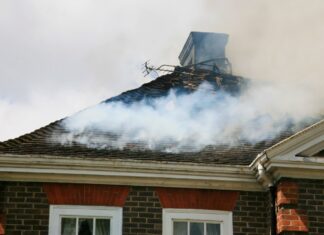

Sabrina Capoli campaigned with one vision in mind and she’s laser focused on it: be the voice of all New Jersey students.
Participation in Seneca High School’s student council and a minor setback when she was in seventh grade set the stage for the junior to become a student representative from the N.J. Association of Student Councils (NJASC) at the state’s Board of Education.
“It’s a great organization and I’ve had interest for running for state office for a long time,” Capoli recalled. “I ran my seventh grade year for a different position and I lost. That’s what spurred me to run again and I was super motivated after that.”
Executive positions in NJASC are delegated to the southern region (10 counties) in even years and the northern region (11 counties) in odd years. More information on where counties fall can be found by visiting NJASC.org.
Capoli said she hopes to build on the work of former representative Sahil Ganatra of South Brunswick High School, namely an advantageous use of technology. Capoli hopes to continue highlighting the work schools are doing to uplift communities, such as Seneca’s 110 Carranza Prom House.
New Jersey is rich with diversity in students from county to county, to districts within a county. Capoli sees it as a positive for the state Board of Education to have extensive knowledge of what issues affect what students and how to resolve them.
During her campaign to become the representative, Capoli made pit stops at the Jan. 8 NJASC executive elections at The College of New Jersey. To all schools in attendance, she emphasized to student councils that she is there for them and not for herself.
“I spoke to them — how I want to be their voice and how I will speak up for them,” she noted.
A talkative type, Capoli looks forward to using her bubbly and determined personality to learn about the school districts in the state and how to offer changes for students.
Speaking of changes, Capoli is focused on three other initiatives — school safety, LGBTQ rights and curriculum inclusivity and diversity.
Capoli has shadowed Ganatra, whose term ends in February, and learned ways to put school safety at the forefront. One of them included Ganatra’s presentation on the shooting at Pleasantville-Camden high schools’ football game in December.
History courses, Capoli explained, would include more thorough lessons on cultures in America outside of the “immigrants who came from Ireland and Italy.” A diverse course, she added, would help students understand the world of today better.
As for her LGBTQ initiative?
“We have a Gay Straight Alliance here and I think if schools implemented more clubs like that, it will improve the school environment,” Capoli said of Seneca. “Also, just making students aware.”
She added that Seneca’s Anti-Defamation League has helped students become more understanding of those who are different and to embrace the equality in it.
While a BOE representative will be at every state meeting, Capoli admitted she has never been to a Lenape Regional, Tabernacle or Shamong school districts’ board meetings. She hopes to become more involved locally with her position.
“I think the first time that I really wanted to talk to an administrator was when I found out about the state’s budget cuts, especially to arts programs,” she recalled. “I’m a singer and I love to do the musical and stuff like that.
“It was the first time where I thought students really need a voice to do that.”
Executive members of NJASC decide the theme for the association each year — with last year’s being Let Every Voice Express Leadership Uniting People — and the designated charity. For 2019, that charity was the Emmanuel Cancer Foundation.
Capoli said she doesn’t yet have a theme in mind, but would like the charity to be Relay for Life, a fundraiser for the American Cancer Society.
As a representative, Capoli decided political science or public policy would be her focus in college, and insisted she would get involved in politics following graduate school, perhaps with her title being U.S. Senator or U.S. Representative.
“I’d love to start with an undergrad, then maybe go for law school or run for (U.S.) Congress,” she gushed. “If not, I would be a campaign aide or a congressional staff member. I just think that some of the stuff I see in politics today is stuff that I don’t like.
“I feel like if someone’s going to fix it, why not take matters into my own hands?“









